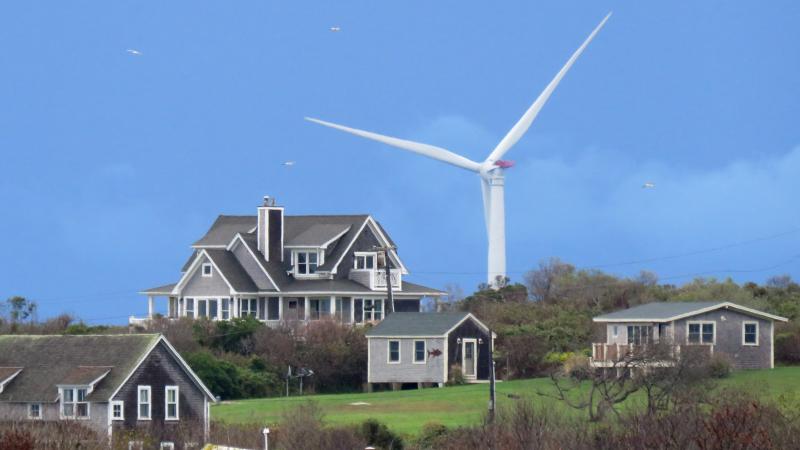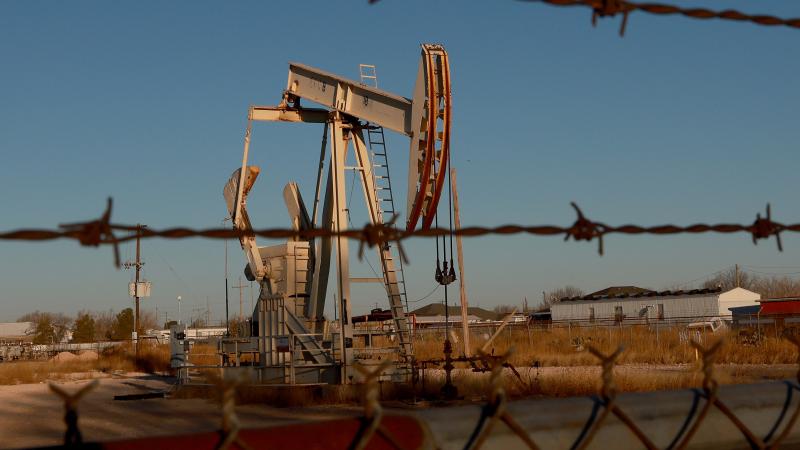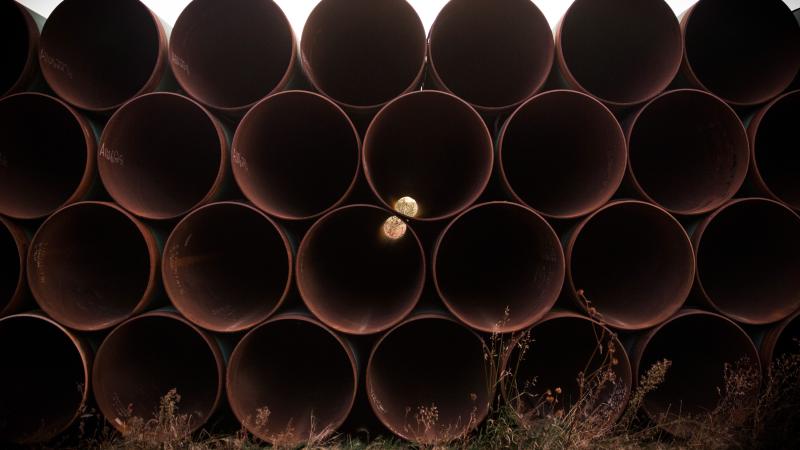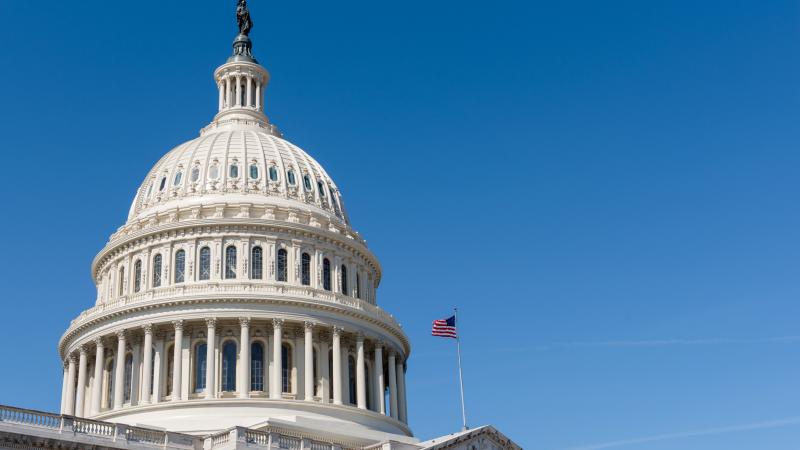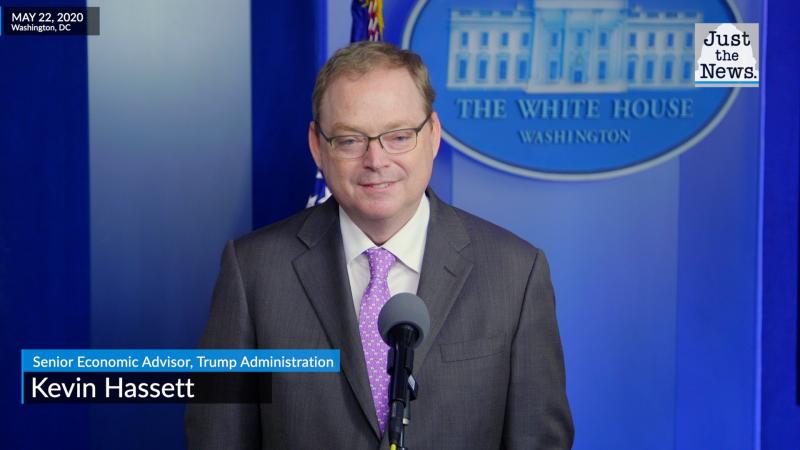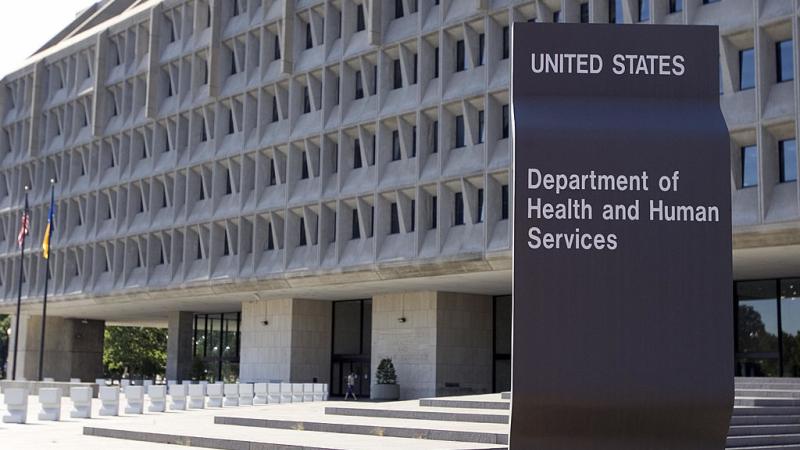Gulf of America becomes a battle of energies between GOP oil drilling and Dems’ offshore wind
Forget about the name: Democrats in a recent House Natural Resources Committee hearing insisted that there never was any war on fossil fuels. They then claimed the industry was corrupt and destroying the planet.
Upon taking office, President Donald Trump placed a moratorium on offshore wind development and overturned Biden’s ban on offshore oil drilling. These executive orders set the stage for what has become a battle of energies off America’s coasts. While Republicans champion Trump’s “American energy dominance” vision, which includes support for offshore oil and gas production in the Gulf of America, Democrats are angered that Trump is blocking offshore wind, which they say is “clean” and affordable energy that can satisfy growing demand for electricity.
Though the Biden-Harris administration aggressively pursued a buildout of offshore wind, the industry struggled financially over the past few years, and a blade failure off the coast of Nantucket last summer, which littered the island’s beaches with debris, turned into a public relations disaster.
Increased cost, decreased investment
There’s also been a growing concern as the costs of offshore wind skyrocket. Earlier this month, Dominion Energy, the Virginia Pilot reported, announced that the cost of its Virginia Beach offshore wind project increased 9%, from $9.8 billion to $10.7 billion, which will add 43 cents to the average residential monthly power bill.
The Bureau of Ocean Energy management canceled an offshore wind lease sale that was scheduled to take place last year due to a “lack of competitive interest.” The world’s biggest offshore wind developer Orested, slashed investment by 25% this month, the Financial Times reported, and last month, Shell announced it was reducing its involvement in the industry.
Meanwhile, in the Gulf of America, oil production declined from 1.9 million barrels of oil per day in January 2023 to 1.65 million barrels of oil per day in November 2024. Industry experts testifying at a House Natural Resources Committee hearing Tuesday said the slowdown was mainly due to the regulatory hurdles the Biden-Harris administration put up.
“A Byzantine permitting system, coupled with fervent opposition to human advancement from activist groups makes building infrastructure nearly impossible to ensure America's long term competitiveness,” Lane Wilson, senior vice president and general counsel for Oklahoma-based Williams Companies, said.
Dirty drilling
Democrats at the hearing insisted the previous administration wasn’t targeting the oil and gas industry, but they also claimed the industry was rampantly corrupt and destroying the planet.
Rep. Yassamin Ansari, D-Ariz., called the so-called war on fossil fuels “imaginary” and pointed out the U.S. is producing more oil than ever. “Republicans' dirty drilling agenda will not make America any more energy dominant, and it will not drive prices down,” Ansari said.
Ansari said it’s “baffling” that Republicans attack offshore wind, which she said would address the “climate crisis” while creating high-wage union jobs for Americans.
“President Trump's offshore wind ban isn't just ridiculous, it's self-destructive. He's taking one of the best new ways to provide clean electricity off of the table at a time when our electricity needs are growing for the first time in decades,” Ansari said.
Ansari claimed that oil companies, many of which are making large investments in offshore wind and other renewable resources, are also funding groups pretending to be grassroots organizations and promoting the link between whale deaths, cancer, and offshore wind.
“It's clear that these corporations have successfully lobbied President Trump and convinced him of these falsehoods as well,” Ansari said. The dozens of grassroots organizations opposed to offshore wind on the East and West coasts have long denied they take money from oil companies or act in their interests. Ansari didn’t explain why oil companies would invest in industries only to secretly fund opposition to them.
Point of order
At times the discussion at the hearing turned tense. Rep. Dave Min, D-Calif., alleged that Trump had held a meeting with oil executives in which he promised to slash environmental protections in exchange for a donation of $1 billion to his campaign. Min was likely referring to a story first reported by The Washington Post in May, which is based entirely on anonymous sources.
“Americans might reasonably see this hearing as a form of corruption where House Republicans are delivering on the pay-to-play promise that Donald Trump made last year to the oil industry,” Min said.
During his confirmation hearing last month, Energy Secretary Chris Wright was asked about the allegations that Trump promised beneficial regulations to the oil and gas industry in exchange for a $1 billion campaign donation. Wright said he was at the Mar-a-Lago dinner, which took place the previous April, and he denied that any such conversation took place.
“I was at the dinner, and the President put forward no such deal,” Wright said.
Rep. Harriet Hageman, R-Wyo., requested a point of order in response to Min’s remark. “I think that he has maligned every single person on this side of the aisle,” Hageman said. Rep. Pete Stauber, R-Minn., chair of the committee said he would review the language Min used and make a determination later on Hageman’s request.
The spat between Min and Hageman didn’t end there. Hageman, in discussing opportunity costs, said that she wished the Democrats understood the concept of energy poverty. In response, Min requested a point of order, claiming that Hageman was maligning Democrats by claiming they don’t understand opportunity costs. Stauber overruled him.
Fossil fuel cheerleading
Rep. Jared Huffman, D-Calif., called the hearing more “fossil fuel cheerleading” by Republicans and claimed that oil and gas companies in the U.S. and Saudi Arabia aren’t planning to increase production.
“Why? Because they love high prices. High prices mean high profits,” Huffman said.
Long before Trump was elected, experts in the oil and gas industry were predicting that increases in production were unlikely, even if Trump won. As with all industries, when the supply begins to satisfy demand, prices drop below what companies need to remain profitable, which discourages increased production. Huffman called this behavior “colluding” and claimed the offshore wind industry wouldn’t respond to price signals like the oil and gas industry.
“The offshore wind industry actually wants to support our growing energy needs. They don't want to put our coastal economies at risk. They won't collude with OPEC and gouge American consumers. They also won't cause environmental disasters. The risks to offshore drilling for our coastal economies and marine ecosystems is staggering,” Huffman said.
Robert Rapier, a chemical engineer and editor in chief of Shale Magazine, told Just the News that as onshore oil and gas production, most of which comes from shale deposits, becomes more expensive to produce, offshore drilling might become more attractive.
“The lowest-hanging fruit is still the shale plays, with offshore remaining more expensive. But as the best shale spots are produced, the breakeven cost will rise over time. That will make offshore more competitive, and anything that can reduce offshore production costs will lower the price at which it makes sense for producers to start devoting more budget to offshore,” Rapier said.
Regulatory uncertainty
While the Democrats at the hearing insisted there’s no war on fossil fuels only to accuse the industry of being destructive and corrupt, Republicans and witnesses at the hearing discussed how impediments from activists and regulators have held the industry back.
Chett Chiasson, executive director of the Greater Lafourche Port Commission, said in the past 12 months, there were only three oil discoveries in the Gulf of America, which is a sharp decline from the previous year.
“This slowdown is further exacerbated by our current federal five-year leasing program, which now includes only three lease sales between 2025 and 2029, and that is far short of the historical average,” Chiasson said.
Tim Tarply, president of the Texas-based Energy Workforce and Technology Council, said that an offshore oil and gas facility can cost between $500 million and $1 billion, and it can take a decade between the purchase of a lease and the first barrels of oil produced.
“When you add regulatory uncertainty to that, it's [the investment] a harder decision to make,” Tarpley said.
Trump continued his push to unleash American energy Friday with an executive order establishing a National Energy Dominance Council that will be headed by Wright and Interior Secretary Doug Burgum. While it remains to be seen what will come of Trump’s many executive orders overturning Biden’s wind-focused climate agenda, for the next few years at least, the industry will get a lot more support from Washington.
The Facts Inside Our Reporter's Notebook
Links
- placed a moratorium on offshore wind
- overturned Bidenâs ban on offshore oil drilling
- struggled financially
- blade failure
- the Virginia Pilot reported
- Bureau of Ocean Energy management canceled
- the Financial Times reported
- reducing its involvement in the industry
- oil production declined
- House Natural Resources Committee hearing
- Williams Companies
- making large investments
- long denied they take money
- The Washington Post in May
- confirmation hearing last month
- predicting that increases in production were unlikely
- Shale Magazine
- Greater Lafourche Port Commission
- federal five year leasing program
- Energy Workforce and Technology Council
- establishing a National Energy Dominance Council

